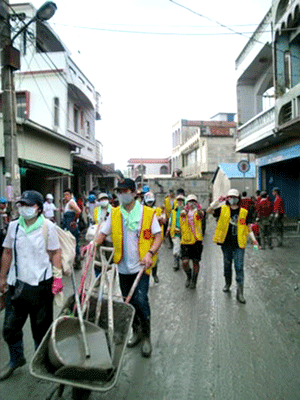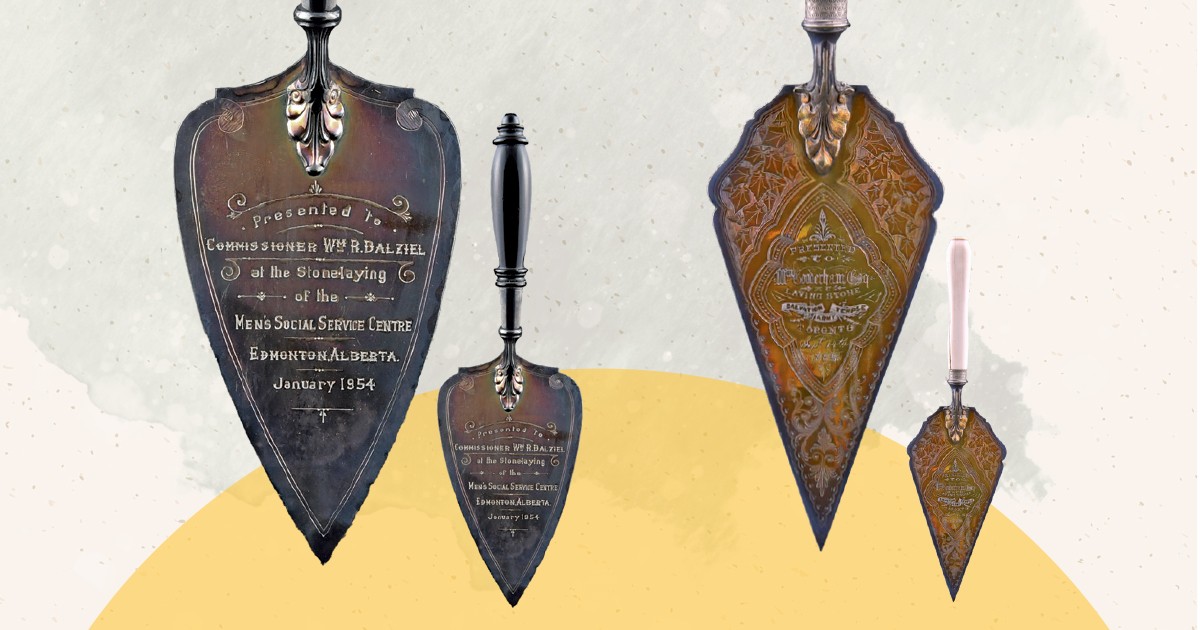 In the four weeks since Typhoon Morakot brought devastation to Taiwan, The Salvation Army has been providing volunteers for the clean-up operation, supporting local residents made homeless and helping families who have been left without almost all their possessions so that life can return to as normal as possible as quickly as possible.
In the four weeks since Typhoon Morakot brought devastation to Taiwan, The Salvation Army has been providing volunteers for the clean-up operation, supporting local residents made homeless and helping families who have been left without almost all their possessions so that life can return to as normal as possible as quickly as possible.
The Salvation Army is well known around the world for its people-focused approach and Salvation Army officers in Taiwan have spent hundreds of hours in discussions with victims, village chiefs, school principals, government officials, directors of non-governmental organisations (NGOs) and politicians to find the best ways to serve affected communities and promote a coordinated long-term approach.
The provision of education packs at a total cost of just over 2.8 million Taiwan New Dollars (more than US$85,000), mostly funded from overseas donations, is just one of a number of initiatives. In one particular area where families were left without many of their possessions, Salvation Army teams have provided more than 1,600 schoolchildren with clothing, shoes, books, bags and other equipment so that their return to school after the disruption will be as stress-free as possible.
There are plans for this type of intervention to be repeated in other communities and also for school equipment damaged in the storm and the aftermath to be replaced or repaired.
Major Michael Coleman, Officer Commanding of The Salvation Army in Taiwan, says The Salvation Army's is concerned not only for the children's material needs but also that some degree of normality will be returned to their lives. 'Some of these children are still living in very chaotic home situations, but at least we know they will have some stability in their school life,' he says.
The Salvation Army has provided disinfectant packs to 1,800 homes and sleeping bags to victims and relief workers. It has also deployed teams which have given 1,000 hours of assistance in clean-up operations.
Many roads and bridges have been destroyed, making travel and access extremely difficult. Hundreds of people had to be rescued by helicopter from the mountainsides and then provided with emergency accommodation in the towns and communities of the area. The Salvation Army has been seeking to assist as many as possible in these situations and bring some relief from the pain and loss this has caused.
The Salvation Army is in discussions with Kaohsiung County Government and school principals in the Maoying and Dou Nah areas. Some of the needs identified include:
* Shoes for schoolchildren
* Generators for schools still without power
* Water filter systems for schools still without water
Some of the schools are only accessible by mountain roads that are currently in disrepair.
New needs continue to be discovered and international Salvation Army emergency responders, alongside local Salvationists and officers, are working hard to ensure that support is given where it is most needed and the most vulnerable people are given care and assistance.
Donations to the 'South Pacific and East Asia Fund' can be made online by clicking here.
Photo: Salvation Army team members set out to help clean up areas affected by the Typhoon.









Leave a Comment